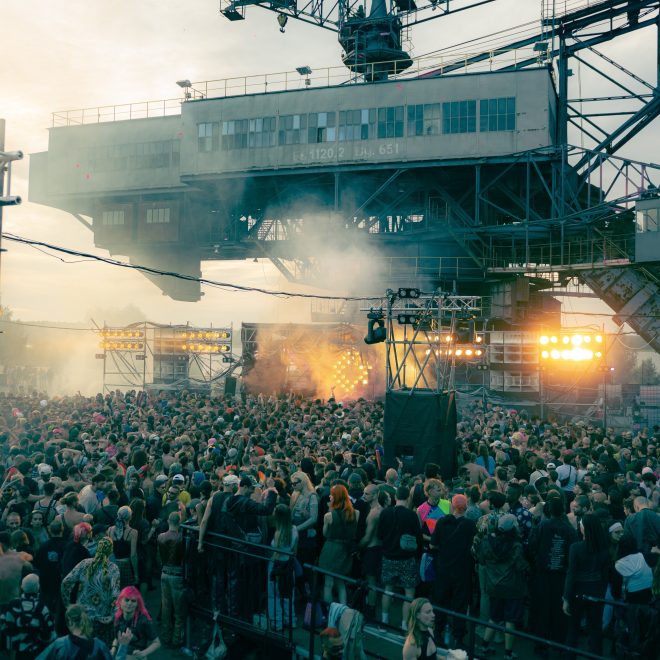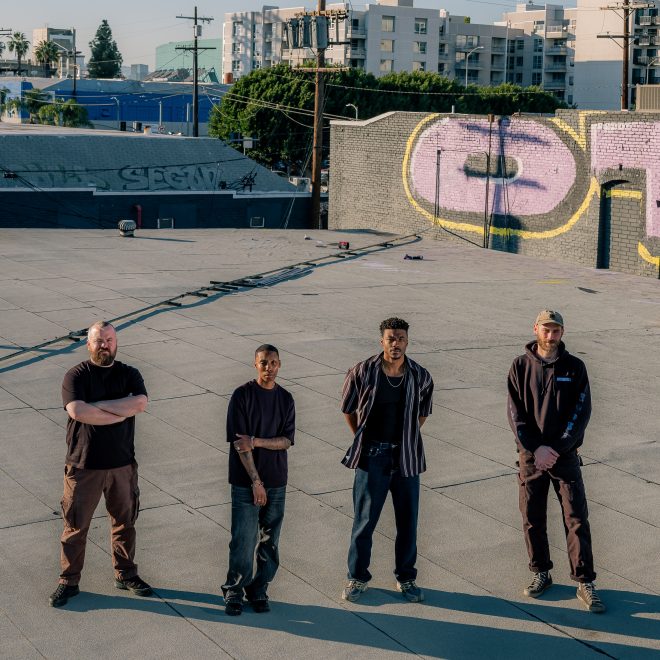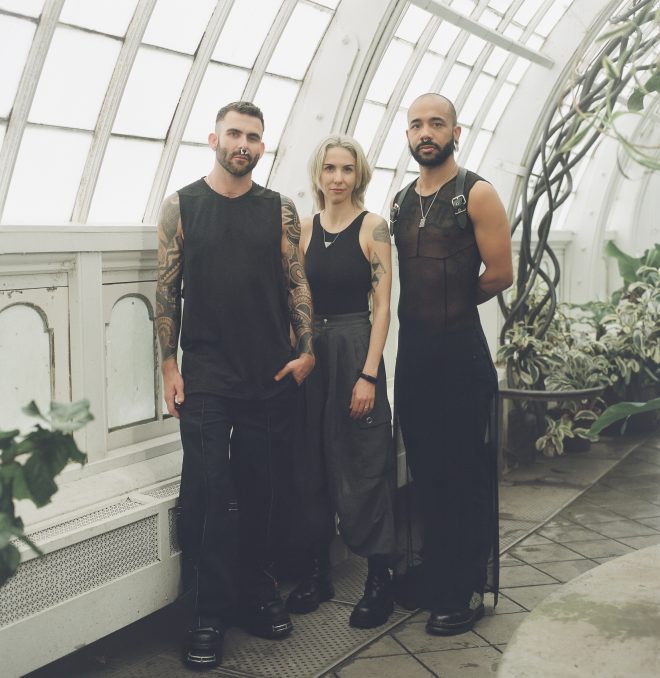Coast to Coast: Signal and MÜLL Bring American Underground Culture to WHOLE 2025
Los Angeles house meets San Francisco techno as two US collectives make their European festival debuts

As WHOLE Festival continues expanding its global reach, this year marks a significant milestone: the festival's first American collective debuts. Signal from Los Angeles and MÜLL from San Francisco represent distinctly American approaches to underground electronic music culture: one rooted in warehouse house traditions, the other challenging West Coast nightlife norms through harm reduction and local advocacy.
While separated by 400 miles of California coastline, both collectives emerged from similar frustrations with mainstream club culture and legal restrictions that have pushed American underground scenes into increasingly creative spaces. Their WHOLE debuts mark not just individual recognition, but validation of American underground culture's unique contributions to global queer electronic music conversation.
Signal: Warehouse Innovation and Scene Mentorship (Los Angeles, United States)
Los Angeles faces unique challenges for underground electronic music culture, with legal restrictions requiring alcohol sales to stop at 2am forcing most above-ground venues to "turn the lights on and kick everyone out by 1:45am." This regulatory landscape has fundamentally shaped Signal's approach to event production and community building, pushing them toward warehouse innovation that now defines their international appeal.
"Signal was started out of a desire for a music focused space in the LA queer underground," the collective explains. "From the very first party, our intention has been highlighting and paying homage to the roots of house music. That's the through line for most everything we do, including our WHOLE takeover!"
From Blank Slate to Community Ownership
The restrictive legal environment poses unique challenges for LA's underground scene development. As collective member Mez observes: "This has largely pushed our clubbing community underground... many promoters in the LA scene have to show up with a little bit more production experience when it comes to hosting a party to be successful."
This necessity has transformed Signal into masters of warehouse transformation. Andrew describes their process: "It's a much larger production operation than a party in a club. You're working from a blank slate: four walls, a ceiling, and a floor. Everything else comes in a truck, from sound, lighting, toilets, gear, bar, etc. It's like throwing a mini festival every time: and that shows up in the vibe too: more freedom, more creativity, and a stronger sense of community ownership."
The collective's warehouse expertise extends beyond logistics to encompass team dynamics essential for successful underground events. "Everyone on our team brings years of experience and we all work quite well together. We all have our roles, but we're constantly bouncing ideas off of each other too. It's that trust we have with one another and the genuine collaborative spirit that holds it all together," they explain.
Community Mentorship and Scene Health
Beyond their own events, Signal has positioned itself as "somewhat of an older sibling of the LA queer underground." This mentorship role reflects their understanding that scene health requires supporting emerging voices: "It can be quite difficult sustaining a project like this, and we offer a lot of support to newer promoters that are doing interesting work in the scene. We know that when the entire scene is healthy, we all benefit."
This approach recognizes how challenging it can be to maintain underground projects in LA's sprawling cultural landscape, where community building requires intentional effort across geographic and social distances.
Post-Pandemic Intentionality
Signal's analysis of how LA's underground culture has evolved reflects broader shifts in what people seek from nightlife experiences: "The pandemic sparked a slow but steady shift in what people are seeking when they go out. Especially with all the turmoil in the world now, spaces that connect and heal feel more important than ever: and people are more aware of promoters who are in it for the wrong reasons."
This shift extends beyond clubbing to encompass broader cultural values: "But this shift goes beyond just clubbing: there's a bigger move toward intentionality in art and community as a whole. Partying for the sake of it is getting old; people are craving connection and depth. That's exactly what Signal aims to provide."
International Recognition and LA's Contributions
The collective sees their WHOLE participation as addressing broader perceptions about Los Angeles' contributions to electronic music culture: "I feel Los Angeles is often overlooked as a serious contributor to the global dance music scene. To be recognized by WHOLE, the biggest queer festival in the world, is a huge reassurance that we're moving the needle a bit in the right direction: and that LA's underground has something unique to offer to the global conversation."
This recognition validates years of work developing warehouse culture that transforms limitations into distinctive strengths, demonstrating how local constraints can become catalysts for creative innovation that resonates internationally.

From left to right: Andrew Odom, Sevyn, Mez, Brandon Loyd
MÜLL: Building Community Through Harm Reduction (San Francisco, United States)
San Francisco's MÜLL emerged in 2023 with a specific mission: to establish techno within the city's historically house-dominated queer electronic music scene. Their approach extends far beyond genre advocacy. Operating from a scene-first, sex-positive, harm-reduction mindset in-line with San Francisco’s queer roots, MÜLL is supportive to its community, yet challenges some fundamental assumptions about West Coast nightlife culture.
"MÜLL began in 2023 to further establish Techno in the queer scene of San Francisco," co-founders Patrick Mann and Fawks Gilić explain. "We function from a harm reduction mindset and activate spaces free of limitations in order to challenge the norms of West Coast nightlife culture, while showcasing queer artists and collectives from around the world."
Their values ("queer diversity, unwavering production and sound quality, anti-exclusivity, sex positivity, and reverence for dancing on the dancefloor") reflect a holistic vision of what electronic music spaces can offer their communities. The collective's irreverent motto, "We are all trash, no class," is a tongue-in-cheek nod to their rejection of exclusivity while maintaining high standards for their scene.
For MÜLL co-founder Fawks, this philosophy stems from personal experience within San Francisco's scene: "Our goal with MÜLL has always been creating space. I have had the most connected, inspiring and enlightening conversations on the edge of the dance floor, soundtracked by dope DJs from near and far. This is the greatest gift I have received from SF's queer electronic music scene, and I aspire to give back to the scene that has shaped me."
This emphasis on creating space for genuine connection (rather than just entertainment) connects MÜLL to harm reduction principles that prioritize community care alongside celebration. Their approach to showcasing "queer artists and collectives from around the world" also demonstrates how local scenes can strengthen themselves through international collaboration, making their WHOLE debut both natural progression and opportunity to export San Francisco's community-building values.

Photo Credit: Luke Kraman | From left to right: Patrick Mann, Kudeki, Fawks Gilić
American Underground Innovation
What emerges from Signal and MÜLL's approaches isn't just geographic similarity, but shared recognition that regulatory constraints can become catalysts for creative community building. Both collectives have transformed limitations into distinctive strengths: Signal's warehouse expertise developed in response to LA's restrictive liquor laws, and MÜLL's sex-positive, harm reduction frameworks challenging mainstream West Coast party culture.
Their WHOLE debuts represent more than American additions to the festival lineup. These collectives demonstrate how local scenes maintain distinct identities while engaging international networks, proving that American underground culture has evolved far beyond its commercial stereotypes to offer meaningful contributions to global conversations about community care, artistic integrity, and sustainable scene building.
WHOLE Festival is taking place across 18-21 July at Ferropolis, Gräfenhainichen, Germany: connect with WHOLE Here: Website | Instagram | SoundCloud
Next: Global Convergence - How WHOLE Became a Worldwide Movement


